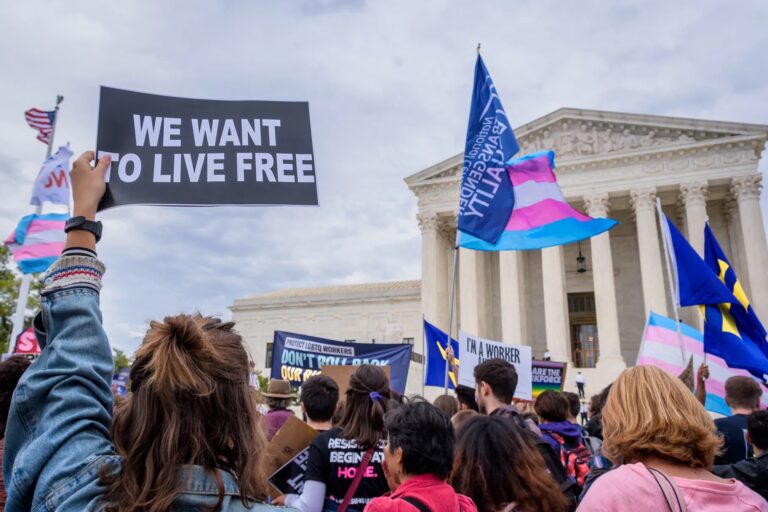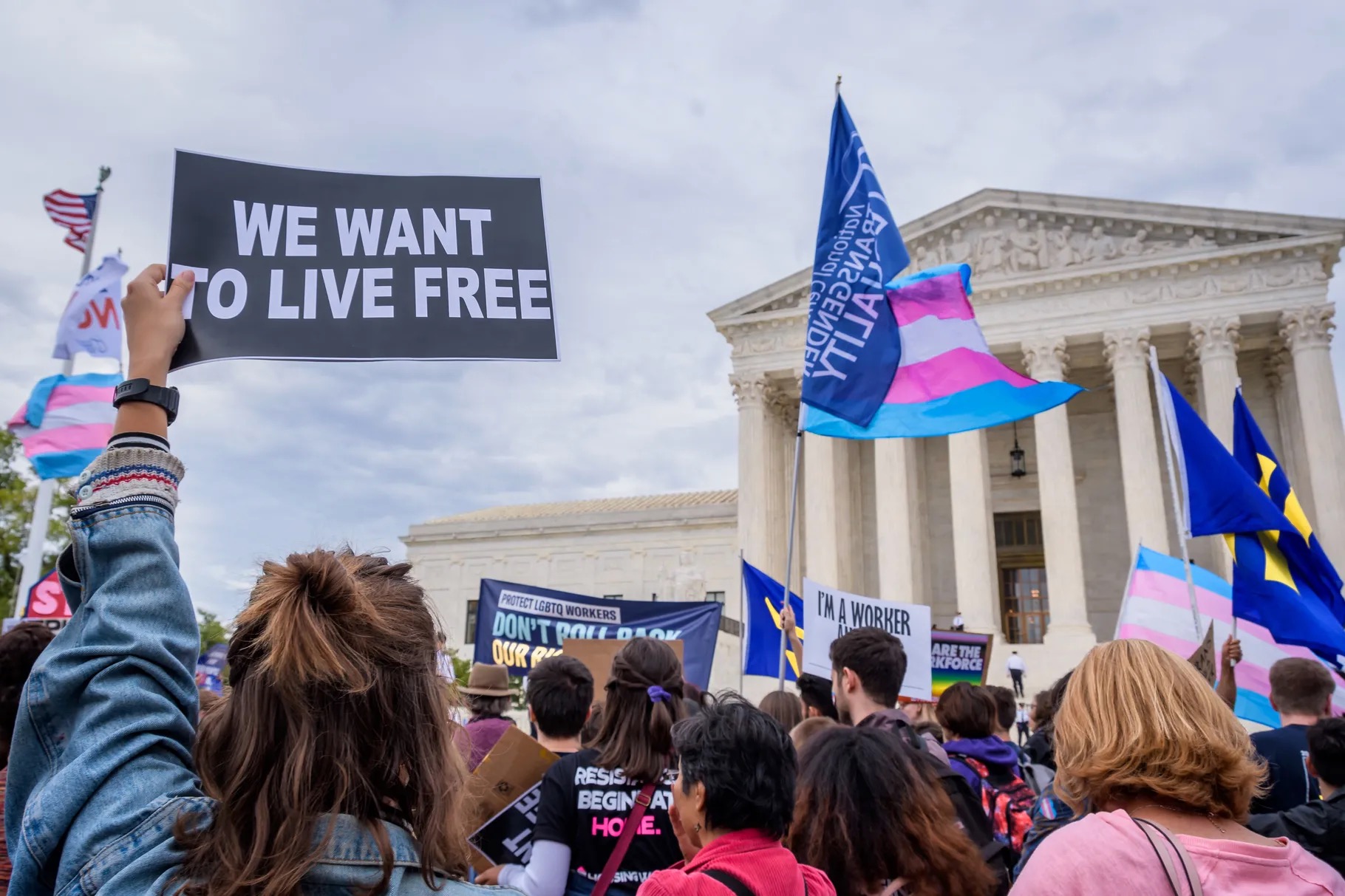ChangeLawyer of the Week
Say It Louder
SCOTUS leaves transgender rights alone…for now
More Of This

For the third time in the last year, the Supreme Court unexpectedly turned away a case asking it to diminish the rights of young transgenderAmericans in much of the country.
On Tuesday, the Court announced that it would not hear Metropolitan School District v. A.C., a case asking whether public school districts may require transgender students to use bathrooms that align with their sex assigned at birth, as opposed to their gender identity.
In A.C., the United States Court of Appeals for the Seventh Circuit ruled in favor of three trans students — so these students may use the bathroom that aligns with their identity. Because the Supreme Court decided not to hear this case, this Seventh Circuit ruling will stand, at least for now. The Seventh Circuit has jurisdiction over federal legal disputes in Illinois, Indiana, and Wisconsin.
Read the rest on Vox
The conservative legal movement’s end game is a radical transformation of government
Less Of This

Federal administrative agencies impact basically all aspects of American life. Congress tasks them with regulating everything from fair housing and labor practices to the safety of the food we eat, the water we drink, and the air we breathe. And for decades, courts have generally deferred to those agencies to do the jobs that Congress assigned to them, so long as the agencies act “reasonably.” If the Food and Drug Administration says its authority to regulate food safety means it can tell companies to include protein in baby formula, no problem. If the FDA says it can tell companies to include babies in baby formula, that’s a problem.
But next week, the Supreme Court is hearing oral argument in Loper Bright v. Raimondo and a related case, Relentless v. Department of Commerce, which the justices could use to upset this decades-long balance and destabilize how the government functions. Behind this attack on the administrative state are corporations that resent the burden of regulations, because cutting corners means more cash. And ending courts’ deference to reasonable agency interpretations of their mandates could make those regulations unworkable.
Read the rest on Balls & Strikes
How modern day SCOTUS got so powerful
Speaking Of...

Amicus is a podcast about the law and the nine Supreme Court justices who interpret it for the rest of America.
This week on Amicus, I spoke with Ben Johnson, an associate professor at the University of Florida Levin College of Law. His work focuses on governance by committees, and he recently published an article in the Atlantic, “The Little-Known Rule Change That Made the Supreme Court So Powerful.” We spoke about the Supreme Court’s legitimacy, and how it operates as a gatekeeper for what kind of legal decisions are made these days. This excerpt of our conversation has been lightly edited and condensed for clarity.
Listen to the podcast on Slate









